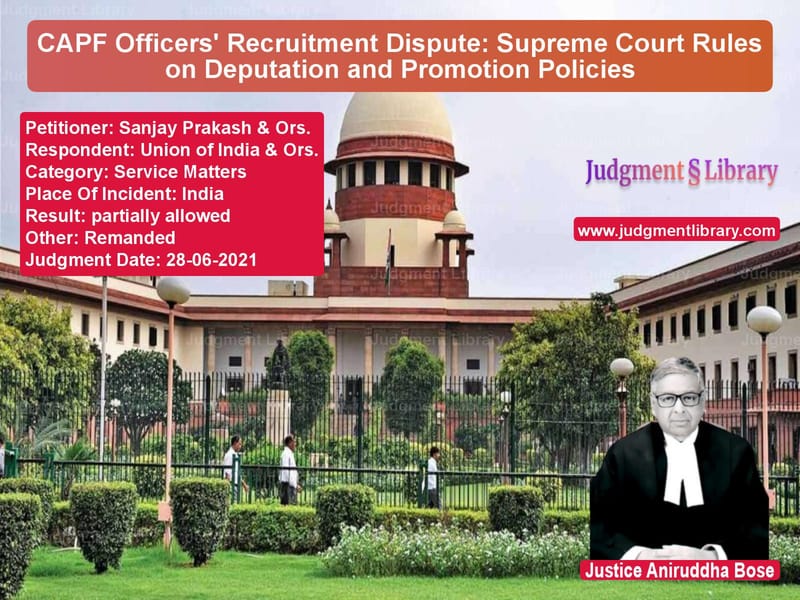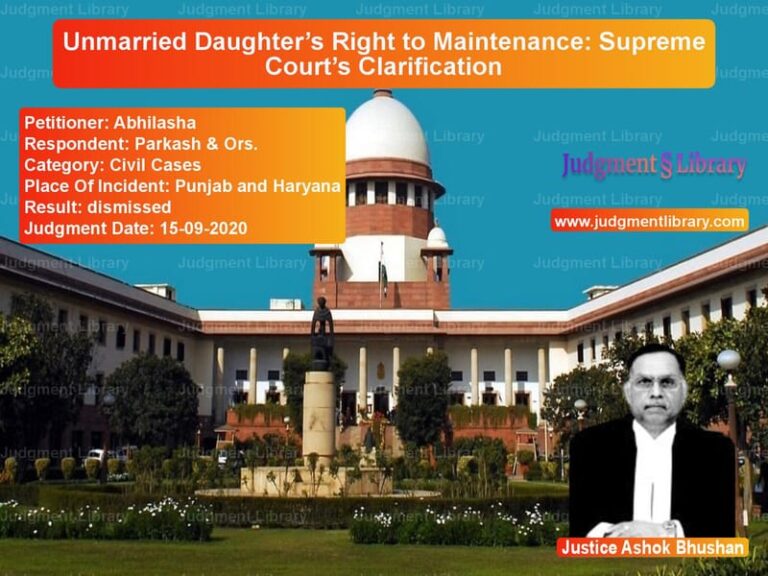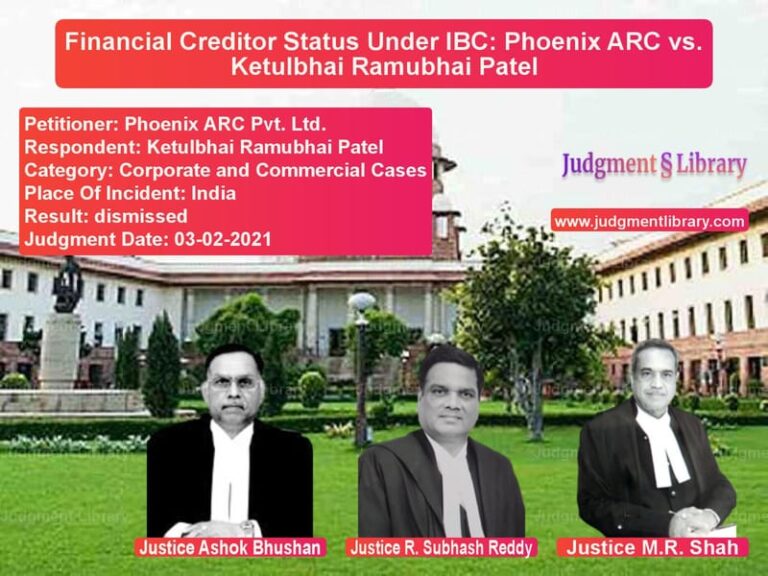CAPF Officers’ Recruitment Dispute: Supreme Court Rules on Deputation and Promotion Policies
The Supreme Court, in the case of Sanjay Prakash & Ors. v. Union of India & Ors., addressed a longstanding dispute regarding the recruitment and promotion policies in the Central Armed Police Forces (CAPFs). The case, which involved personnel from the CRPF, BSF, SSB, ITBP, and CISF, revolved around the contentious issue of deputation versus promotion for senior administrative posts. The decision has significant implications for officers serving in the CAPFs and the Indian Police Service (IPS).
Background of the Case
The case originated from petitions filed by Group A officers of the CAPFs who challenged the existing recruitment rules. The core issues were:
- Whether the additional posts created under the 2016 Cadre Review should be filled through existing recruitment rules, which allow for deputation.
- Whether all posts up to the Senior Administrative Grade (SAG) should be filled through promotion alone instead of deputation.
- The demand for treating CAPFs as Organized Group A Services (OGAS), similar to other civil services, as affirmed in G.J. Singh v. Union of India.
Petitioners’ Arguments
The CAPF officers, led by Sanjay Prakash, argued that:
- The recruitment rules allowing for deputation from IPS officers hindered promotion prospects for CAPF officers.
- Their services should be recognized as Organized Group A Services (OGAS) to ensure fair career progression.
- The current system of filling posts through deputation violated the Department of Personnel and Training (DoPT) guidelines on cadre review and promotion.
- The reliance on deputation was arbitrary and adversely affected officers who had served for decades in CAPFs.
Respondents’ Arguments
The Union of India and IPS officers opposed the petition, contending that:
- Deputation was necessary to maintain leadership and administrative efficiency in CAPFs.
- As per the IPS Cadre Rules, 1954, a certain percentage of CAPF senior posts must be reserved for deputation from IPS officers.
- CAPFs and IPS officers play distinct roles, and eliminating deputation would hamper coordination between civil and paramilitary forces.
- Any changes to the recruitment policy must be made by the legislature and not through judicial intervention.
Supreme Court’s Analysis
A bench led by Justice Aniruddha Bose considered the arguments from both sides and made the following observations:
- The court acknowledged that the existing recruitment rules had not been revised in accordance with DoPT guidelines despite multiple cadre reviews.
- The practice of reserving senior posts for deputation adversely affected the career growth of CAPF officers.
- The principle established in Union of India v. Harananda—which held that RPF should be treated as OGAS—was relevant to this case.
- However, the court refrained from issuing a directive to immediately abolish deputation but emphasized that the issue must be reconsidered by the executive.
Supreme Court’s Ruling
The Supreme Court issued the following key directives:
- The Ministry of Home Affairs (MHA) was instructed to review the recruitment rules for CAPFs in light of DoPT guidelines and representations from CAPF officers.
- CAPF officers were permitted to submit comprehensive representations seeking amendments to recruitment rules.
- The government was directed to conduct a cadre review in consultation with all stakeholders and complete the process before June 30, 2021.
- All pending recruitment and promotions must be carried out per the existing rules until a final decision is taken.
Impact of the Judgment
The ruling marks a significant step toward addressing career stagnation issues within CAPFs. The judgment:
- Ensures that promotional opportunities for CAPF officers are reviewed fairly.
- Forces the government to reassess deputation policies in CAPFs.
- Provides clarity on the status of OGAS recognition for CAPFs.
- Highlights the need for periodic cadre reviews to ensure equitable career progression.
Conclusion
The Supreme Court’s decision in Sanjay Prakash & Ors. v. Union of India sets a crucial precedent for CAPF officers seeking fair promotions. While it does not immediately abolish deputation, it compels the government to reconsider recruitment policies to ensure that CAPF officers receive just career advancements. The ruling reaffirms the judiciary’s role in ensuring transparency and fairness in government service policies.
The appeal was partially allowed, directing the government to review and revise recruitment policies in CAPFs.
Petitioner Name: Sanjay Prakash & Ors..Respondent Name: Union of India & Ors..Judgment By: Justice Aniruddha Bose.Place Of Incident: India.Judgment Date: 28-06-2021.
Don’t miss out on the full details! Download the complete judgment in PDF format below and gain valuable insights instantly!
Download Judgment: sanjay-prakash-&-ors-vs-union-of-india-&-ors-supreme-court-of-india-judgment-dated-28-06-2021.pdf
Directly Download Judgment: Directly download this Judgment
See all petitions in Recruitment Policies
See all petitions in Promotion Cases
See all petitions in Public Sector Employees
See all petitions in Judgment by Aniruddha Bose
See all petitions in partially allowed
See all petitions in Remanded
See all petitions in supreme court of India judgments June 2021
See all petitions in 2021 judgments
See all posts in Service Matters Category
See all allowed petitions in Service Matters Category
See all Dismissed petitions in Service Matters Category
See all partially allowed petitions in Service Matters Category







